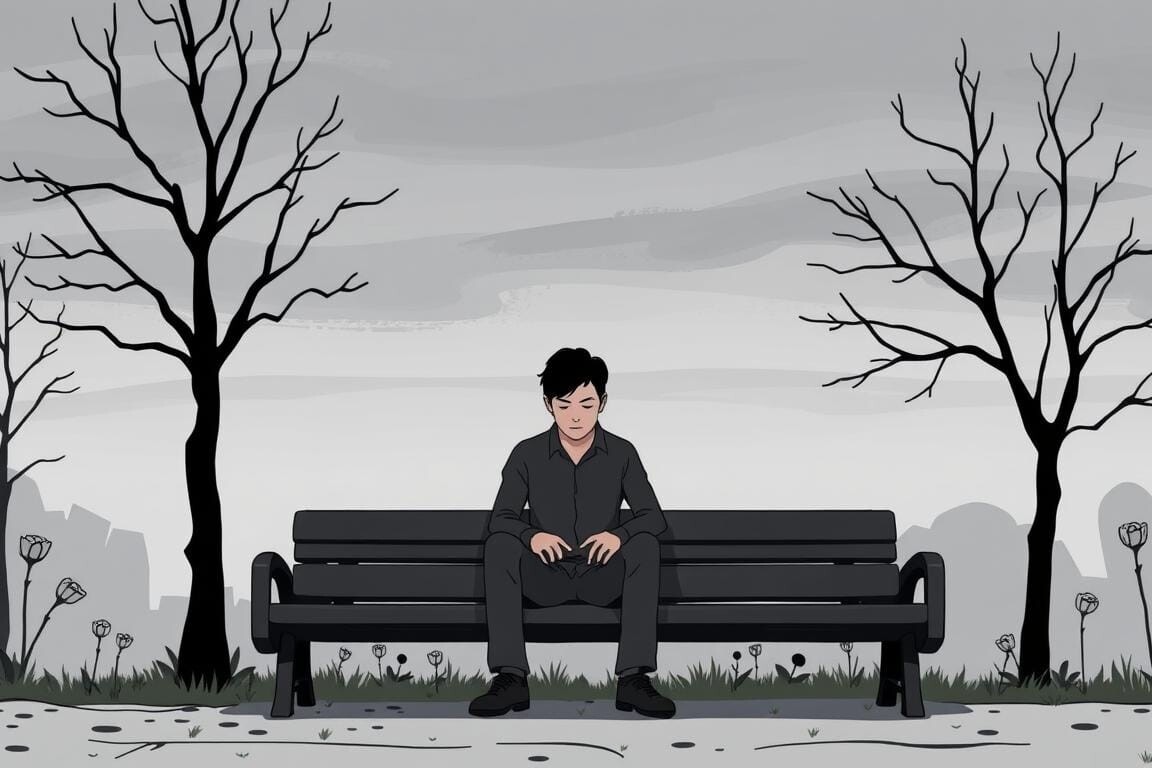If you’re fighting depression, you’re not alone. Millions worldwide face this mental health battle. It affects your life, relationships, and happiness. But, there are effective treatments to help you manage symptoms and take back your life.
We’ll look at different therapy options, including music therapy, with Dr. Chandril Chugh’s help. He’s a top expert in mental health. We’ll cover how therapy can help with appetite changes, hopelessness, and cognitive issues. This info will help you start your healing journey.
We’ll explore music therapy’s history, benefits, and how it works. It’s a unique way to tackle depression’s complex challenges. Knowing your therapy options empowers you to choose what’s best for you.
Table of Contents
ToggleWhat is Music Therapy?
Music therapy uses music to help people reach their goals and feel better. The American Music Therapy Association (AMTA) says it meets specific goals. Music therapists work with clients to make plans just for them.
It helps people express feelings, handle stress, and talk better. Music therapy is great for those with mental health issues like depression or anxiety.
Studies show it can lower anxiety in people with cancer and those in hospitals. It also helps those with depression more than just talking therapy alone.
How Does Music Therapy Work?
Music therapy includes listening, playing, singing, and writing songs. These activities help people feel and express emotions. Music therapists make plans that fit each person’s needs.
- It can release hormones like dopamine and endorphins, making people feel better and less in pain.
- Listening to music can lower anxiety right away. It’s a quick way to feel better.
- It helps with social skills, creativity, focus, and coordination. It also boosts self-awareness and family bonds, especially for kids.
Music therapy is a fun way to deal with emotions, stress, and improve mental health.

Music Therapy and Mental Health
Music therapy is a strong tool for mental health, especially for depression. It can lower anxiety and boost self-confidence. Making music helps people express feelings and connect with themselves.
The Benefits of Music Therapy for Mental Health
Music therapy can lower stress hormones and help relax. It also releases mood-boosting chemicals. This can improve emotional stability and mental health.
Music therapy helps with depression by reducing stress and improving mood. It lets people express emotions and relax. Different music styles can meet individual needs and preferences.
There are two music therapy types for depression. One involves creating music, the other listening to it. Both can help improve mental health, along with other treatments.

In summary, music therapy is a valuable addition to mental health care. It offers many benefits for those with depression and other mental health issues. Music helps with self-expression, stress relief, and emotional well-being.
How Does Music Therapy Work?
Music therapy is a powerful tool that works with the brain. It uses the limbic system, which handles emotions and social skills. This system releases happy chemicals like dopamine and endorphins. This is why music therapy helps with depression.
The science behind music therapy shows it affects many brain areas. These include rhythm, emotion, and pitch. It makes the brain’s reward center active, improving mood and well-being. Music therapy can lessen depression and anxiety symptoms by offering a positive distraction and encouraging self-expression.
Music can also change how our body reacts. It can slow down heart rate, lower blood pressure, and reduce stress hormones. It helps manage the physical signs of mental health issues. Music therapy can be tailored to fit each person’s musical tastes and needs.
Music therapy can be through singing, playing an instrument, or just listening. It uses the brain’s sound processing ability. Mental health experts use music to help people with depression and anxiety. They aim to improve emotional control, self-expression, and overall well-being.
History of Music Therapy
Music therapy has ancient roots. In Ancient Greece, people believed music could heal the mind and body. But it wasn’t until the 20th century that it became a real therapy.
The first talk of music therapy was in 1789. Doctors studied music’s healing effects in the 1800s. In the 1940s, music therapy programs started in universities, thanks to E. Thayer Gaston.
After World War II, musicians visited hospitals to play for soldiers. Music helped these soldiers feel better, both mentally and physically. This showed how powerful music could be.
The field of music therapy has grown a lot since then. The American Music Therapy Association (AMTA) was formed in 1998. It brings together music therapists from the U.S. and over 30 countries.
The Certification Board for Music Therapists (CBMT) has over 8,000 certified music therapists. They hold the MT-BC credential. Music therapy is now recognized for treating mental health issues like depression.

Benefits of Music Therapy for Depression
Music therapy is a powerful tool for treating depression. It offers many benefits for those with this mental health issue. A study looked at 1,649 research papers and found that music therapy can reduce anxiety and help with depression.
It helps people relax and connect with their feelings. This can make the bond between the client and their therapist stronger. This bond is key to better treatment.
Other studies show music therapy can also improve how well people function. It can lower anxiety in those with depression. In a study with 23 people with hard-to-treat depression, researchers found brain activity changes in those who got better.
They also found that enjoying the music more made the therapy work better. This shows that knowing the music can make the therapy more effective.
Music therapy isn’t just for adults. It also helps reduce depression and anxiety in cancer patients. This is a non-invasive way to help. As music therapy grows, researchers and clinicians are looking into how it can help with depression in different ways.

- Music therapy can effectively reduce anxiety and alleviate symptoms of depression in adults.
- Music therapy can improve overall functioning and lower anxiety levels in those dealing with depression.
- Music therapy has shown promise in reducing depression and anxiety in cancer patients as a non-invasive method.
- Continued research is needed to explore the clinical applications of music therapy in various contexts to enhance treatment outcomes for mental health conditions like depression.
Therapy Treatment for Depression
Research shows that mixing music therapy with standard care helps a lot. Studies say music therapy can make treatment better than just standard therapy. It makes managing depression symptoms easier and more effective.
Music and emotions are closely linked. Music therapy lets people express themselves and manage stress. It’s a great way to help with mental health, whether you make music or just listen.
Combining Music Therapy with Standard Care
Recent studies say music therapy can change the game for depression treatment. It works well with medication and psychotherapy. This way, it tackles depression from both emotional and cognitive sides.
People who try music therapy say it helps a lot. They feel less anxious, more confident, and can talk better. Music therapy can be adjusted to fit each person’s needs, making it a great addition to standard care.
If you or someone you know has depression, talk about music therapy. It can be a game-changer when combined with standard care. It might help you feel better and manage symptoms more effectively.
Music Therapy for Children and Adolescents
Music therapy is great for kids and teens with depression. It’s fun and lets them express feelings and boost self-esteem. Music-making and performance help them focus and understand themselves better.
It also makes families stronger and helps kids and teens be more resilient. A study showed music therapy can make kids feel better by changing their mood and heart rate.
Music therapists work in many places, helping with mood and anxiety disorders, autism, and trauma. They use special tools to help kids express themselves and manage their feelings. This way, they can deal with depression and other mental health issues.
About 1 in 5 kids and teens in the US face mental health challenges. Music therapy is key in helping them. It lets them find their voice and build strength to overcome depression and other issues.
Implementing Music Therapy
Qualified music therapists start by getting to know you well. They look at your needs, strengths, and what music you like. They also check your emotional, physical, and social health, and how you communicate.
After understanding you, they work with you to set goals. They create a music therapy plan just for you. This plan might include making music, singing, or listening to songs that fit your needs.
The music therapy process is careful and thoughtful. It uses music to help you feel better. With a skilled music therapist, you can start a journey to better mental health and a happier life.
FAQ
What is music therapy?
Music therapy uses music to help people. It helps them reach their goals and feel better. Music therapists make plans just for each person.
How can music therapy benefit mental health?
It can lower anxiety and boost confidence. These are key for those with depression. Making music lets people express feelings and connect with themselves.
How does music therapy work?
It works by using music to reach the brain. It activates parts of the brain for rhythm, emotion, and pitch. This makes the brain release happy chemicals, improving mood.
What is the history of music therapy?
Music therapy has roots in ancient times, like Ancient Greece. It was used for healing. In the 20th century, it became more formal, starting in the 1940s.
What are the benefits of music therapy for depression?
It can lessen anxiety and depression symptoms. It also helps adults function better. Music therapy makes standard treatments more effective.
How can music therapy benefit children and adolescents with depression?
It’s a fun way for kids to express feelings and build self-esteem. It helps them develop skills like focus and self-understanding. These are key for managing depression.
How is music therapy implemented?
Qualified music therapists use a detailed approach. They start with an assessment to understand the client’s needs. Then, they create a plan tailored to the client’s goals.
Source Links
About The Author

Medically reviewed by Dr. Chandril Chugh, MD, DM (Neurology)
Board-Certified Neurologist
Dr. Chandril Chugh is a U.S.-trained, board-certified neurologist with expertise in diagnosing and managing neurological disorders, including migraines, epilepsy, Parkinson’s disease, and movement disorders. His clinical focus includes evidence-based neurological care and patient education.
All content is reviewed for medical accuracy and aligned with current neurological guidelines.




